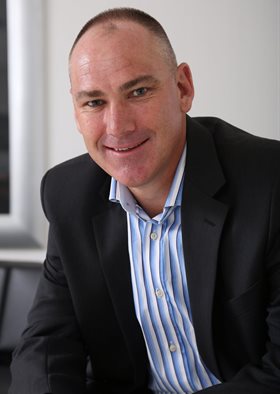Consumers' sentiments, spending and behaviour will remain changed after the pandemic. Recent Accenture global research shows that 95% of consumers are making significant and lasting changes to how they live, work and shop. South Africa is no different.

John Watling, Accenture Africa
When the inevitable recession hit, many consumers and organisations were forced to adapt to a new world to survive and compete in the future.
As the world slowly recovers from the shock, a hopeful outlook has led to some myths that the data dispels, and businesses will need to look at these new realities as they shape plans for the future.
Myth 1: “The spike in e-commerce is a passing phase”
In South Africa, e-commerce was always about 1% of sales, but in a matter of months, we saw 10 years of growth. The question was would we sustain it or would it return to the 1% after lockdown restrictions were lifted?
Interestingly, most people are not returning to physical stores including the relatively affluent over the age of 40, who were previously not buying groceries online but are now sticking to it. The reality is consumers will continue to shop online at rates significantly above pre-Covid-19.
Myth 2: “Consumers will focus on economical brands”
The data does not fully support this. There is still a market for premium products, across consumer income brackets. The majority of consumers (58%) are maintaining or increasing their purchases of premium brands, and survey respondents said they are twice as likely to buy themselves little luxuries than others. Of those increasing premium purchases, 57% are in low or middle-income brackets.
The reality is consumers each have their own set of standards that they want to maintain, and therefore, a set of products or brands that they’re unwilling to compromise on, even if it means cutting back in other areas. This might include products linked to the health and safety of their family or brands that align with consumers’ own values. The sale of eye makeup for example grew by 204% between April and June.
Beyond makeup, other products and experiences can provide comfort, a pick-me-up or help celebrate a significant moment. This helps to explain why premium categories recovered quicker during the last recession than their mass-market counterparts.
Myth 3: “Covid-19 has driven a return to consumer loyalty”
The limited availability of products at the beginning of the crisis coupled with new demands for healthy, environmentally friendly and locally sourced products led many consumers (63%) to trial alternate brands for the first time but loyalty should not be assumed.
As new habits form, CPG brands have a window of opportunity to delight consumers and foster connections with them that will turn into meaningful, long-term relationships. Companies must leverage the vast amounts of data available to them to uncover insights about their consumers that will help them create stickiness through compelling, hyper-relevant experiences.
Involving consumers as co-creators, for instance, gives them active roles in the formation of the brand at every stage of the product concept-development-commercialisation process. This will assure the brand of the market fit, and remain relevant and accessible to their core target consumers.
Myth 4: “Once a vaccine is available, people will return to pre-pandemic activities away from home”
Consumers’ use of their homes as the hub for entertainment and social occasions is not temporary. People are still spending more time at home than they were last year, and less time in other locations, with 67% planning to do most of their socialising from home in the next six months and perhaps long into the future. Although some people simply remain uncomfortable with going out, others – due to the recession – will not be able to afford to go out.
New experiences have been welcomed that are more affordable and convenient. Early last year, JD.com partnered with Chinese music label TaiheMusic Group and several alcohol brands to create an online clubbing experience. They hosted a three-hour show each week, during which viewers could purchase spirits from brands including Budweiser, Rémy Martin, Carlsberg and Pernod Ricard. According to JD.com, sales of featured alcohol brands increased up to 40% during shows.
Myth 5: “Working from home means doing the same thing in a different location.”
Where consumers live, the amount of working space they have and whether or not kids are home all have an impact on day-to-day life and routines. Even though people are at home, they are still as busy or, in some cases, busier. The need for convenience will remain high.
For CPG companies, the way they deliver convenience will need to change. A good example is providing meal kit solutions. People think about and prepare food differently when working from home. Breakfast has become more of a savoured occasion for those used to grabbing something on the go, and people might prepare dinner earlier during the workday or rely on different types of meal solutions to be ready for the evening.
CPG companies will need to pre-empt commoditisation for non-company-owned websites and consider how to forge new “win-win” relationships with retailers and last-mile providers to meet the needs of their consumers whenever and wherever they have them. This includes rethinking the overall consumer experience, including digitally enabled routes to market. It’s time to work as partners and not adversaries, as it can be a mutually beneficial exchange.
Keys to busting these myths
Learn the ways in which consumer behaviour has evolved, and observe how consumers use your product. Look at the bigger picture of what else they are doing and find new ways for consumers to incorporate your products in their habits and daily routines.
Consumers’ preferences and behaviours aren’t what they used to be so it’s time to re-segment consumers in the context of the pandemic and recession. Prioritise segments and earn the loyalty of those who will help grow your business.











































